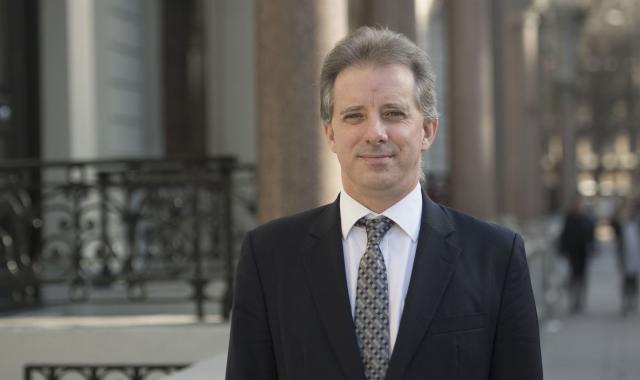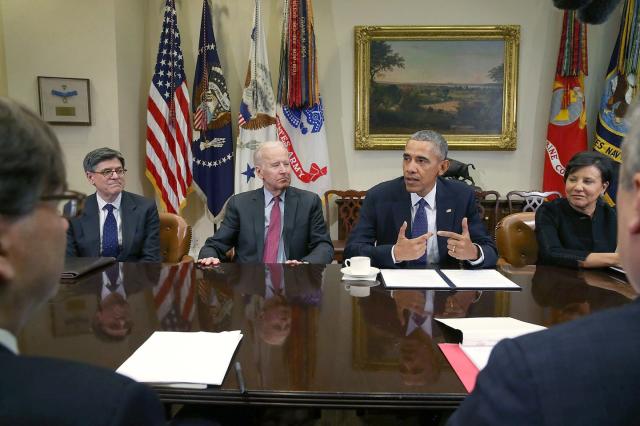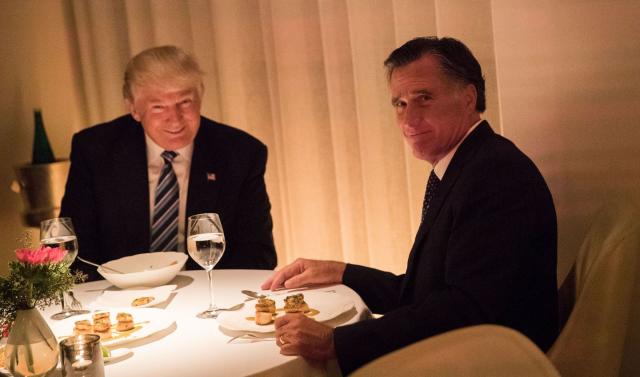Monday brought the news that President Trump’s State Department has been granted $120 million to fight Russian election meddling – which intelligence officials are supremely confident will continue during the 2018 midterms – and the agency has used exactly none of it. With last week’s revelation that Trump has not given NSA Director Mike Rogers “day-to-day” authorization to fight Russian cyber attacks, it’s further evidence the Trump administration is reluctant to counter Russia. Viewed in the light that Russia intervened in the 2016 election to benefit Trump, and that members of Trump’s campaign are under investigation for possibly colluding in that effort, the number of coincidences really start to pile up.
Which takes us back to the now-infamous Dossier, a collection of memos written by former British intelligence officer Christopher Steele detailing Trumpworld’s ties to Kremlin-connected figures. Monday also brought an exhaustive report from Jane Mayer in The New Yorker, examining Steele, his Dossier, and how its findings have been borne out in the subsequent Russia investigations from the House and Senate Intelligence Committees and Special Counsel Robert Mueller. Here are some of the report’s most telling details.
Steele was long concerned with Russian interference in Western elections before he got involved in Trump and 2016.
In April of 2016, not long before he took on the Fusion assignment, he finished a secret investigation, which he called Project Charlemagne, for a private client. It involved a survey of Russian interference in the politics of four members of the European Union – France, Italy, the United Kingdom, and Germany – along with Turkey, a candidate for membership. The report chronicles persistent, aggressive political interference by the Kremlin: social-media warfare aimed at inflaming fear and prejudice, and “opaque financial support” given to favored politicians in the form of bank loans, gifts, and other kinds of support. …The Kremlin’s long-term aim, the report concludes, was to boost extremist groups and politicians at the expense of Europe’s liberal democracies.
We know more about the sourcing of the so-called “Pee Tape.”
The allegation was attributed to four sources, but their reports were secondhand – nobody had witnessed the event or tracked down a prostitute, and one spoke generally about “embarrassing material.” Two sources were unconnected to the others, but the remaining two could have spoken to each other. In the reports Steele had collected, the names of the sources were omitted, but they were described as “a former top-level Russian intelligence officer still active inside the Kremlin,” a “member of the staff at the hotel,” a “female staffer at the hotel when trumphad stayed there,” and “a close associate of trump who had organized and managed his recent trips to Moscow.”
Trump campaign adviser Carter Page is in deep.
Page was an odd choice for Trump. In New York in 2013, two Russian intelligence operatives had attempted to recruit Page, an oil-industry consultant, although wiretaps revealed that one of the operatives had described him as an “idiot.” The F.B.I. later indicted the two Russian spies, and warned Page that the Kremlin was trying to recruit him, but he continued to pursue oil-and-gas deals in Russia…Page has denied any wrongdoing…But, according to the Democrats’ recent Intelligence Committee report, when Page was confronted with evidence he was “forced to admit” that he had met with a top Kremlin official, after all, as well as with a Rosneft executive.
The supposed “Deep State,” and the Obama White House, knew plenty about Russian meddling before the election took place, but took little public action.
Robert Hannigan, then the head of the U.K.’s intelligence service the G.C.H.Q., had recently flown to Washington and briefed the C.I.A.’s director, John Brennan, on a stream of illicit communications between Trump’s team and Moscow that had been intercepted. (The content of these intercepts has not become public.)…But Obama and his top advisers did not want to take any action against Russia that might provoke a cyber war. And because it was so close to the election, they were wary about doing anything that could be construed as a ploy to help Clinton.
The Dossier is not a final product.
“This is source material, not expert opinion.” Sipher has described the dossier as “generally credible,” although not correct in every detail. He said, “People have misunderstood that it’s a collection of dots, not a connecting of the dots. But it provided the first narrative saying what Russia might be up to.” … “In intelligence, you evaluate your sources as best you can, but it’s not like journalism, where you try to get more than one source to confirm something. In the intelligence business, you don’t pretend you’re a hundred per cent accurate. If you’re seventy or eighty per cent accurate, that makes you one of the best.”
Russia may have interfered to block Mitt Romney as a potential Secretary of State.
The Kremlin had intervened to block Trump’s initial choice for Secretary of State, Mitt Romney. (During Romney’s run for the White House in 2012, he was notably hawkish on Russia, calling it the single greatest threat to the U.S.) The memo said that the Kremlin, through unspecified channels, had asked Trump to appoint someone who would be prepared to lift Ukraine-related sanctions, and who would coöperate on security issues of interest to Russia, such as the conflict in Syria. If what the source heard was true, then a foreign power was exercising pivotal influence over U.S. foreign policy – and an incoming President.
Key elements of The Dossier have been confirmed.
His allegation that the Kremlin favored Trump in 2016 and was offering his campaign dirt on Hillary has been borne out. So has his claim that the Kremlin and WikiLeaks were working together to release the D.N.C.’s e-mails. Key elements of Steele’s memos on Carter Page have held up, too, including the claim that Page had secret meetings in Moscow with Rosneft and Kremlin officials…And, just as the Kremlin allegedly feared, damaging financial details have surfaced about Manafort’s dealings with Ukraine officials. Further, his suggestion that Trump had “agreed to sideline Russian intervention in Ukraine as a campaign issue” seems to have been confirmed by the pro-Russia changes that Trump associates made to the Republican platform. Special Counsel Mueller’s various indictments of Manafort have also strengthened aspects of the dossier.
The report is worth reading in its entirety.

















